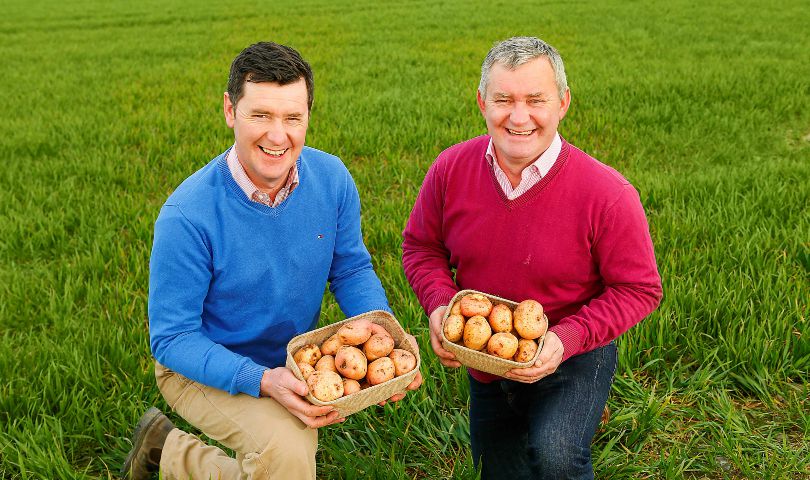Sponsored Content
Origin Green is Ireland’s national food sustainability programme. It is a voluntary programme led by Bord Bia that brings together farmers, food producers, retailers and food service operators with the common goal of sustainable food production. This month, we speak to Paul Finnegan from E. Finnegan & Sons/Finnegan's Farm.
Finnegan’s is a family run farming business operated by brothers Paul and Joe Finnegan. Together, they farm over 2,000 acres of land, with 500 acres dedicated to potato production and the remainder divided into wheat, barley, grassland and oil seed rape.
Located in the heart of the Boyne Valley region, Finnegan’s comprises two companies running parallel. E. Finnegan & Sons which is the farming side of the business and the newly established Finnegan’s Farm is a food production business specialising in par-cooked potato and vegetable products.
What are the key points of your sustainability plan?
Our sustainable approach to farming is economically viable, environmentally sound and socially beneficial, making it work for us, the land and the community. We want to preserve the resources available to us so that future generations can also avail of them.
We own every step of the potato process and have full traceability on all of our products. Our leftover food waste is recycled and fed to our 170 suckler beef herd. The whole process from start to finish happens on our family farm in Balrath, Co. Meath. We aim to have zero food waste and little or no impact on the environment.
During the Covid-19 pandemic, our main aim was to improve the quality of life and physical health of the homeless both in our own community and also on a larger scale. Locally, we are involved with the Soup Kitchen and Meath Women’s Refuge. We are also heavily involved with Athboy People Who Share Care, a group of volunteers who travel to Dublin city every week to provide hot food and drink, clothing and toiletries to hundreds of homeless people.
How important is biodiversity on your farm?
Biodiversity and our farming operation go hand in hand. As members of the All-Ireland Pollinator Plan 2015-2020, we want to increase the number of natural pollinators by protecting and maintaining their natural habitats.
As pollinators are made up mostly of bee species, we have installed eight beehives on our farm. These beehives are collapsible and can be relocated all over the farm depending on the availability of the best food source. At peak season during the summer, each of these hives will hold between 40,000 and 60,000 bees.
In addition to increasing the number of bees on the farm, we have reduced our mowing of grasslands by 33%. This provides a pollinator-friendly environment, allowing wildflowers to thrive in the long grass. We also have 30 bird boxes erected on the farm, providing a safe place for birds to build their nests and protecting them from predators and unfavourable weather.
How do your biodiversity efforts help the local community?
We seek to raise awareness of our biodiversity initiatives within the local community through pollinator-friendly planting and by engaging with groups such as the local environmental awareness initiatives. In conjunction with local schools, we have highlighted the importance of biodiversity by running open days on our farm, holding ‘Insect Hotel’ and ‘Bird Box’ workshops in a bid to educate the future generation and highlight the importance of biodiversity.
To find out more about the Origin Green programme, visit origingreen.ie
Photo: Paul (right) and Joe Finnegan









